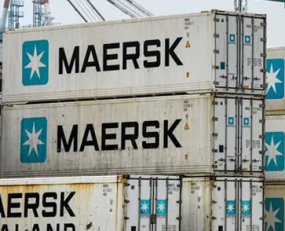
Maersk has been busy over the past quarter. Apart from achieving record profits, it has also announced an expansion in its airfreight operations.
The latter has been through the purchase of Hamburg-based forwarder Senator International, which Maersk decided to buy after receiving “more and more requests from customers for alternative means of cargo transportation” due to congestion and high prices in sea freight. Senator is a long-established forwarder with particular exposure to the automotive sector, which is slightly unusual for an air-forwarder. Maersk describes the company as having a “solid network of own controlled flights, intercontinental rail, warehousing, distribution and packaging across the Americas, Asia, Europe and South Africa”.
In addition, Maersk is building up its own already sizeable fleet of aircraft with the acquisition of “three leased cargo planes operational from 2022 and purchasing two Boeing aircraft newbuilds to be deployed by 2024”. The company will lease Boeing B767-300 cargo planes and purchase two new B777F.
This significant move comes as the Copenhagen shipping company announced quarterly results that reflect what it called the “extraordinary market conditions”. EBITDA (Earnings Before Interest, Depreciation and Amortisation) for Q3 leapt by 202% year-on-year whilst for the first nine months, it is up 191% year-on-year to US$16bn. Revenue for Q3 is up 68% and up 52% for the first nine months. Obviously, the container shipping business benefitted from higher freight rates, with the third quarter seeing these rise by 87%, which in turn led to an 84% increase in revenue despite a 0.6% fall in container volume handled. The result was an explosion in profitability with EBITDA growing by $4.4bn year-on-year to hit $6.3bn. This represented a margin of 47.7%.
The ‘Logistics & Services’ performance was not quite so extreme. It saw revenue growth in Q3 at a mere 38%, whilst EBITDA doubled, from $131m in Q3 2020 to $267m in Q3 2021. The profit margin was 10.3%. The trend over the past nine months is a little less extraordinary but still very buoyant.
Unsurprisingly Maersk is optimistic about the short-term, although its profit and revenue forecasts imply that it suspects things may cool down a little. The company comments that what it calls “current trading conditions” are “temporary”, but “disruptions” are “expected to continue at least into Q1 2022”.
Source: Transport Intelligence, 02 November 2021
Author: Thomas Cullen